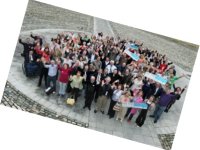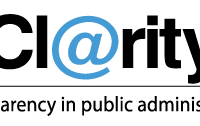In a context where the channels between institutions and citizens have been broken by corruption, Día Blanco [White Day] is developed to promote bonds of trust and legitimacy among communities. In the last 3 years, more than 35,000 citizens have been mobilized by this innovative experience, which helps social organizations to inform their communities about their management and impact on local development through social accountability exercises.
Innovation Tag Opengov: participation
The Electronic System for the Citizen Information Service (e-SIC) was developed to enable, in a cost-effective and efficient way, the reception and processing of access to information requests. The system facilitated the implementation of the Access to Information Act and serves as an essential tool for monitoring its implementation.
Case Study
Implementation of the Access to Information Act, Electronic System for the Citizen Information…
Law nº 12.527/2011, the Access to Information Act, has come to materialize, in practice, transparency mechanisms of public information predicted in the 1988 Brazilian Federal Constitution, and in other several international treaties.
The Law consolidates the understanding that public information is owned by society, not by public bodies that produce or keep it.
Reviewing and improving mechanisms of various processes, such as increasing transparency and knowledge management, were implemented.
We the Citizens is a democratic participatory project to ignite citizen involvement in democracy in Ireland. A pilot project found striking shifts in how participants feel about their ability to influence politics. The project tested whether a more participatory form of democracy could work in Ireland at a time when people felt adrift and disconnected from power. In the project, a representative group of citizens were randomly chosen to attend a Citizens’ Assembly in June 2011.
Better Reykjavik is a co-creation project of the Citizens Foundation, Reykjavik City and its citizens that connects them and improves trust and policy.
It’s a platform for crowdsourcing solutions to urban challenges and has multiple democratic functions: Agenda setting, Participatory budgeting and Policymaking.
Innovations include unique debating system, crowd-sourcing, submission of multimedia content and extensive use of AI to improve the user experience as well as content submitted.
Institutions in the Greek government upload their acts and decisions on the Transparency Portal. Each document is digitally signed and assigned a unique number ensuring that acts and decisions are not valid unless published online. An open data tool enables the re-use of published information. The direct accountability brought by means of the Portal upon the administration, provides fewer opportunities for corruption since citizens and interested parties can monitor the publications and report…




